Tracie Beardsley meets the Dorset man who is the voice of country shows, polo matches and equestrian events around the world
Suddenly, it all makes sense. To the untrained eye, scurry racing looks like pint-sized ponies careering around an arena pulling grown adults on go-karts. But there’s etiquette involved. Strategy. A lead pony. And thanks to the calm, commanding tones of commentator Simon Ledger, I, along with thousands of show ground spectators, understand it all.This is entirely thanks to the seemingly effortless skill of professional commentator Simon’s voice, which has become a familiar part of the summer soundscape at local agricultural shows. Whether it’s at the Gillingham & Shaftesbury, Dorset County, Frome or Melplash, he brings clarity and humour to everything in the main ring, from cattle parades to camel racing. But while he’s a Dorset favourite, Simon is far from just a local fixture. His commentating career spans Sandown Park race meetings, British Army equestrian events and high-goal polo at Guards Polo Club. One day he’s in a shed-on-stilts box above a county show and the next, he’s addressing royalty from a grandstand in the grounds of an Indian palace.
A packed wall planner
When I catch up with Simon at his home near Sturminster Newton, he’s preparing for his busiest time of year: his wall planner reads like a Foreign Office itinerary. In between commentating, he also oversees the British Army polo teams – managing riders, securing sponsorships, facilitating training and accompanying teams to international tournaments. It’s a role that has taken him from Mongolia to Malaysia, Pakistan to Moscow.
Closer to home, August and September are dominated by country shows, stacked back-to-back across the south.
His office is part travelogue, part regimental archive. Silver trophies sit beside elegant horse sculptures, alongside photos of polo teams in far-flung corners of the globe.
The rest of his office is stacked with commentary scripts, folders and paperwork meticulously laid out in regimented rows: his military discipline of 36 years is showing. A graduate of Sandhurst at just 19, Second Lieutenant Ledger’s first assignment was Northern Ireland. ‘I grew up quickly,’ he says. ‘My troop were sons of Yorkshire miners – tough as teak. There I was, a public school “posh boy”. They didn’t mince their words – invective is probably the polite way of putting it. But they looked out for me and taught me humility. That camaraderie still moves me. I’m in touch with many of them even now.’
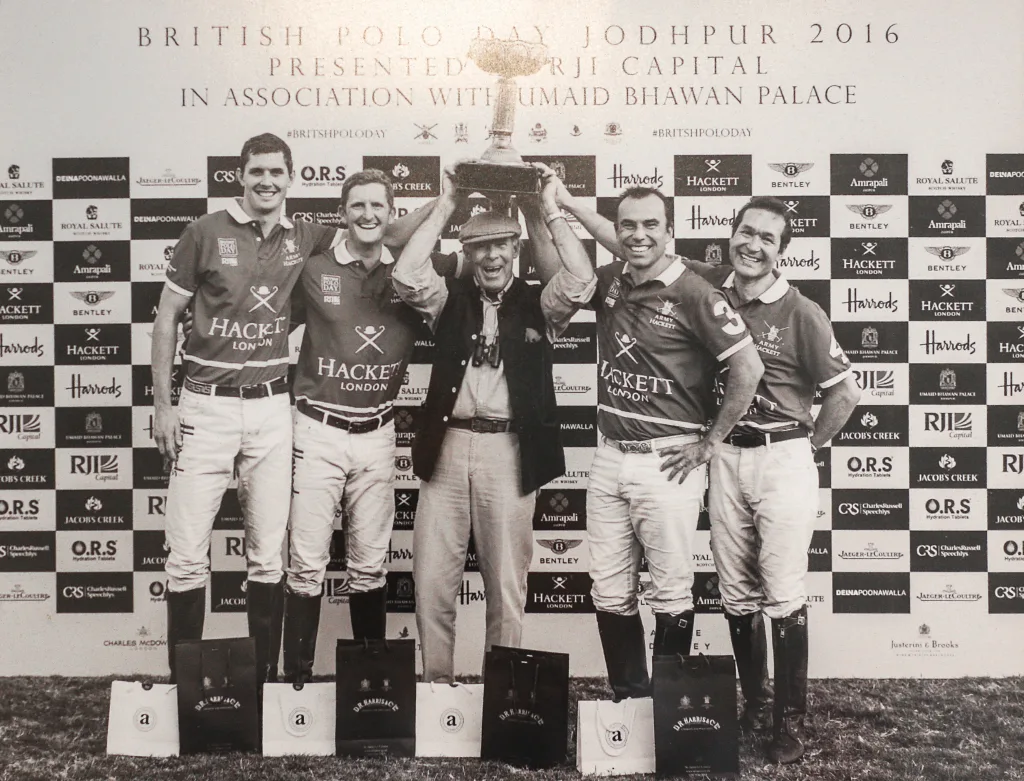
A tour in Germany followed, where Simon traded in ‘his rotten old car’ for £500 and bought his first polo pony. He became a hired hand around the army polo circuit and began to dabble in commentary. His ability to communicate didn’t appear by accident: ‘During my Gunnery Officers Course at Lulworth, I had to memorise a 90-minute lesson on every single part of a gun,’ he says. ‘It taught me how to use my voice to emphasise key points, how to stand confidently before an audience, delivering a structured story with a beginning, middle and end. That discipline is exactly what I use when I commentate.’
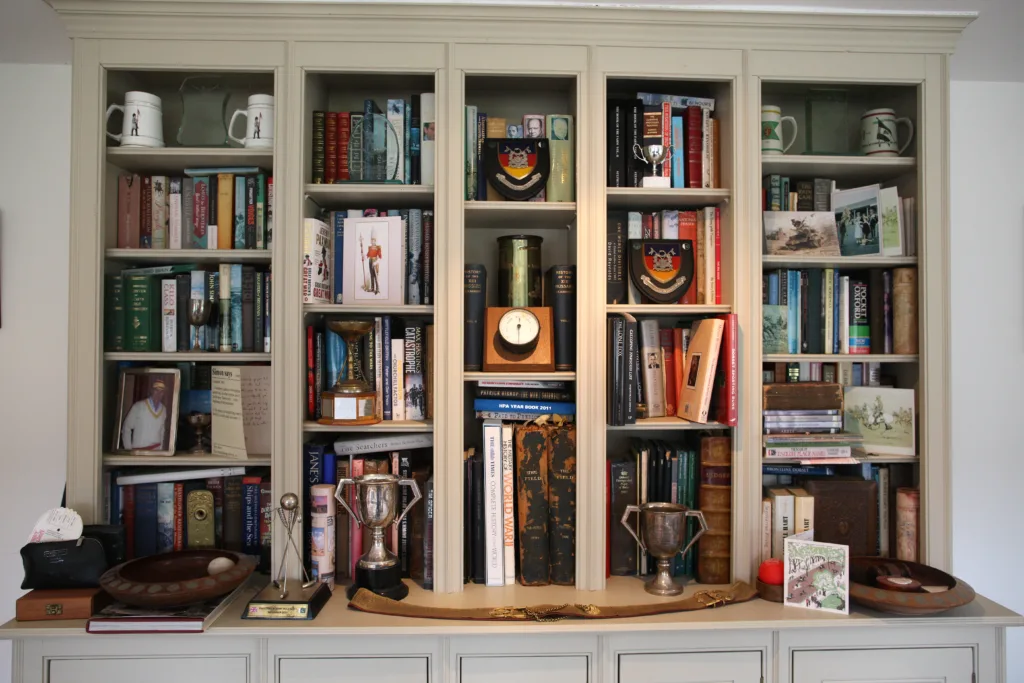
Away from the ring
Long before the gates open to the public, Simon is already walking the showground: ‘It’s important to get the human stories across to visitors, so I like to take time to meet the exhibitors and get to know about them and their animals. I hope my commentary inspires visitors to find out more about the things they see. It’s also vital to thank the show sponsors and put them in the spotlight – their generosity is crucial.’
The job does have its glamorous moments: Simon regularly commentates at polo events attended by diplomats, politicians and royalty.
He’s particularly close to Indian politician and diplomat Maharaja Gaj Singh II of Jodhpur – ‘a great friend’, Simon says. ‘I’ve taken Army teams to him many times.’
He’s especially proud of his fundraising work for the Indian Head Injury Foundation, set up after the Maharaja’s son suffered brain trauma in a moped accident: Simon’s skills with a gavel have so far raised more than $3 million through charity auctions.
Closer to home, he re-established the Dorset Yeomanry in 1997 as a charity supporting territorial servicepeople – reviving a tradition dating back to 1746.Even after ten hours in the commentary box, that military discipline never wavers. ‘I must concentrate, get my facts right and ensure the schedule runs smoothly. I pace myself and drink plenty of water – never alcohol. And then after a long day in a hot commentary box,
I go home, run a bath and check my notes so I’m ready for the next day. It’s exhausting – but I love it.’
Quickfire questions:
Commentator moment?
‘I was commentating at the prestigious Rundle Cup, between the Army and Navy: my border terrier would always sit with me in the commentary box. Having told the crowds in my sternest commentator voice that all spectators must keep their dogs on a lead, the very next thing I see is a dog tearing towards Prince Harry and his polo pony: “Would someone control their dog!” I yelled … only to discover the runaway was mine! There was a lot of humble pie …’
Book by your bedside?
‘I’ve got two Dick Francis’ on the go. I’ve never had the bravery or fitness to become a national hunt jockey, but love it as a sport.
‘Also Exmoor Farms – A Year on the Moor by Victoria Eveleigh: it’s a beautiful book charting a farming year on Exmoor. I also keep a diary of birds I see – I love bird spotting.’
A-list dinner party guests?
‘William Wilberforce – a man ahead of his time. And also Admiral Sir Barington Reynolds, who went to sea at nine years old and played a major role in the destruction of the African slave trade.’


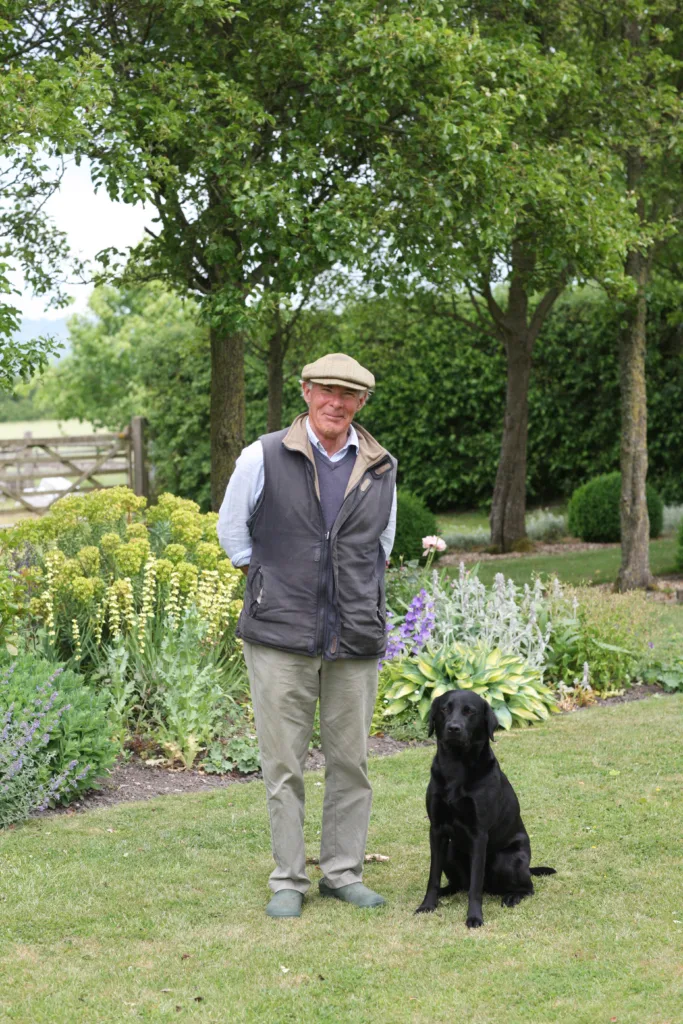
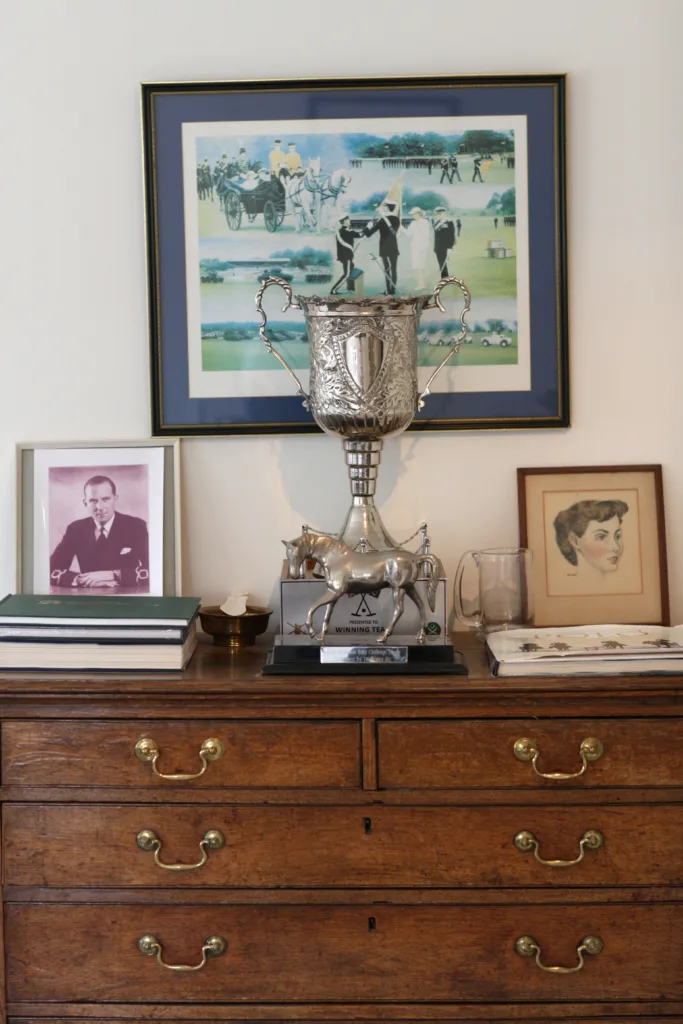
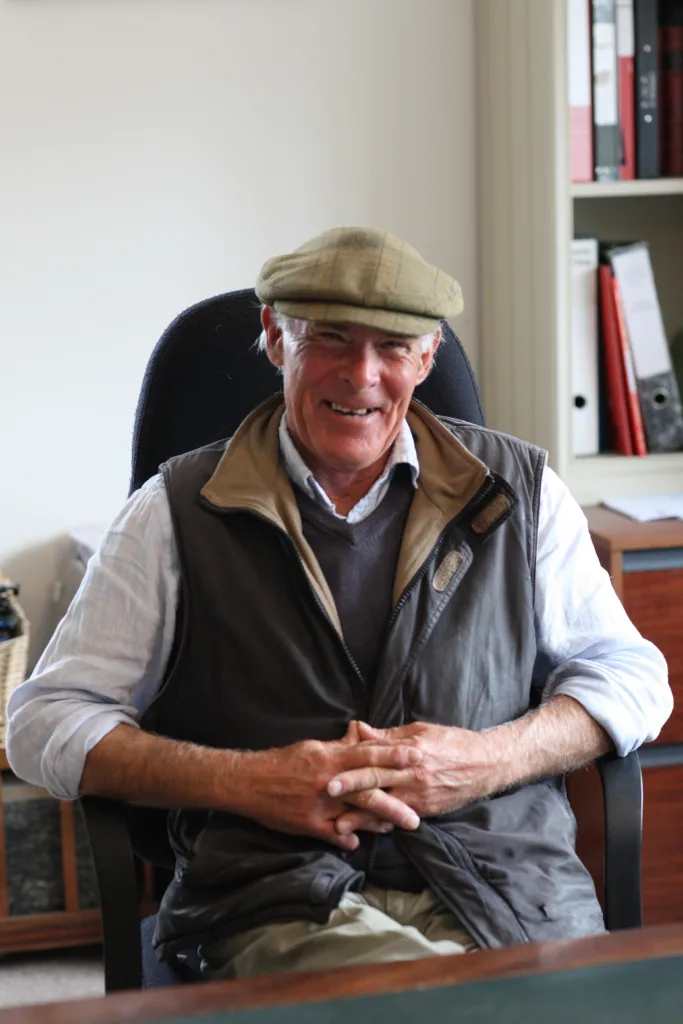

This wealthy entitled elderly individual gave a kind of party political public address at the Frome Cheese show yesterday, bleating on about how (a minority of very rich) farm owners who don’t have very good accountants, will once more have to pay inheritance tax like everyone else.
Completely inappropriate as 99% of the people attending would have had far less money than him.
This country is on its knees because of asset stripping, poor management and lack of investment over the past 50 years. There is no money for public services that people like him should like the rest of us, be helping to fund.
He also railed against solar farms (the impact of climate change on his grandchildren not his problem), and local abattoir closures. I do agree on this latter point but I still don’t think he should have seized this platform even if no one was listening because a mega thunderstorm. Please pass on these comments to the organisers of the cheese show